What does a truly decentralized government look like?
Every society or community consisting of thousands individual's needs a consensus mechanism to resolve disputes. Smaller communities can rely on social pressure and shunning because “everyone knows everyone”. Once a community grows beyond a certain size shunning loses its power because people simply move on and start over with a blank reputation.
In a world where it is impossible to know everyone, it becomes critical to have some means of managing reputation that “everyone” implicitly trusts and that “no one” can escape. Governments are a means of reaching consensus on who owns what and who is in good standing or bad standing, and what behaviors are socially acceptable.
When we meet a random stranger we know that they “aren’t in jail” which means we can infer that they are most likely in “good standing” or at the very least, there is insufficient evidence of wrongdoing. We also know that any property or money they have is based upon a presumption that the courts have settled all litigated disputes and the individual has complied with the judgment. Failure to comply would place the individual in contempt and therefore in jail.
The primary purpose of our governments is to establish consensus on who is “good”, who is “bad”, and “who owns what”. This is a task that is so massive that no individual is able to judge for herself the best outcome of every dispute. It is a task that must be delegated and shared to some system of governance.
King’s Consensus
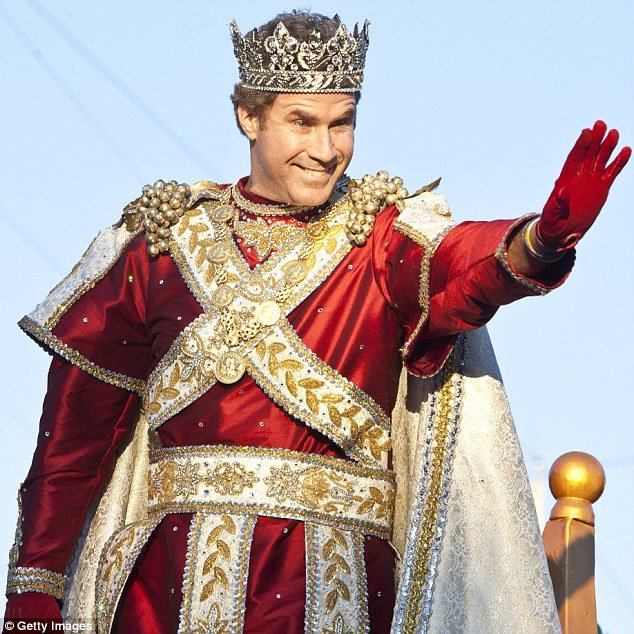
The original consensus process was to allow a king to make the final judgment on everything. This form of government is incredibly centralized and is often decided based upon the principle that “might makes right”.
These systems naturally self-select the individuals who are most cunning, manipulative, and capable of compelling loyalty out of respect, fear or both. It has been said that a benevolent dictator is the best form of government. Unfortunately, even the most benevolent dictator is human and suffers from biases, lack of information, logic errors, and deception.
Give the most humble, honest, and intelligent man on earth the job of being supreme dictator of the world and he will be unable to process enough information to micromanage human affairs for the benefit of all. If such an individual also possessed wisdom, he would know his own limitations and refrain from interfering unless he was certain.
Bureaucratic Consensus
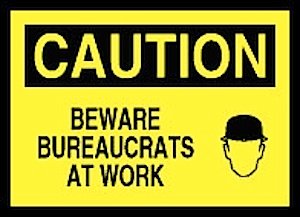
A king will grow tired of hearing everyone’s dispute, so he will appoint trusted judges who will oversee one or more courts. These courts when overloaded will appoint lower courts until the base of the pyramid is capable of hearing and resolving all disputes. To aid in resolving disputes the king may publish his opinion on everything under the sun. These opinions become laws when they are used by the courts to resolve disputes.
A wise king will realize that he does not know enough to publish opinions on everything, so he appoints czars to express opinions over different domains. The proclamations of the czars become law.
This process may involve thousands of people performing many different roles, but ultimately all power flows down from the top. The outcome may be chaotic, unpredictable, and rife with internal contradiction, but it is all ultimately under the control of the king.
Democracy
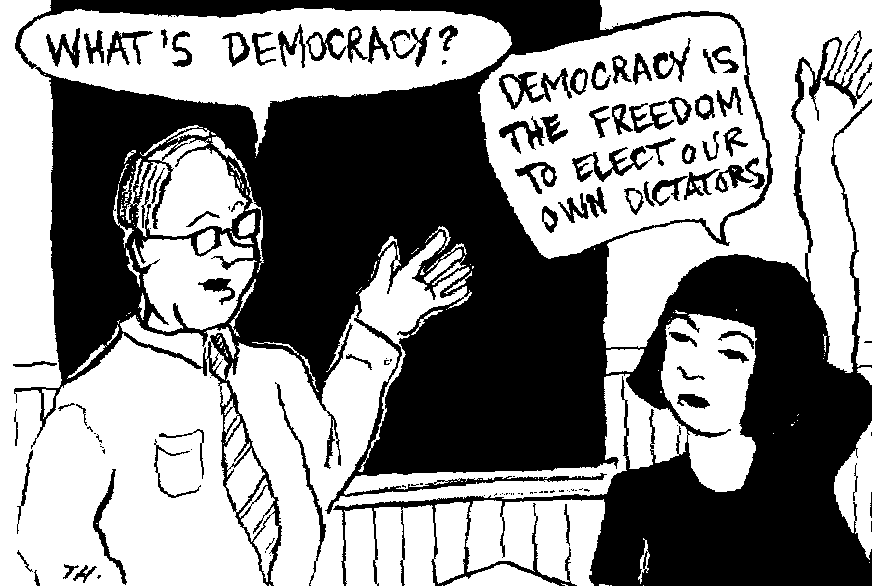
Democracy is the process by which a king may be selected. The best possible outcome is the election of a benevolent king who is intelligent and wise. This outcome is impossible, because anyone who was wise, intelligent, and benevolent would never seek out the position. Instead, the people will elect someone who tells them what they want to hear and then does whatever he or she wants to do once in power.
Democracy does not create decentralized governance, it merely decentralizes the decision over who will be king. Once a decision is made all governance is once again centralized.
Senate, Congress and Parliament are not Decentralized

In an effort to achieve “separation of powers” the framers of many government constitutions create different branches of government and establish committees of elected officials to make decisions.
Rather than look at the “top” of this pyramid which (in the United States) consists of about 600 people, we can look at the bottom rung of the pyramid. Each Senator, Congressman, or Supreme Court Judge is like a democratic kingdom ruling over millions of people. Congress is therefore similar to a smaller scale United Nations.
The theory is that this process provides checks and balances because no senator has power on his own, but must reach consensus with the rest of the elected politicians. If you view this political class as a small town you realize that they all share a commonality and everyone knows everyone. An informal reputation based small-town governance is established among the political elite. Those informal leaders (heads of political parties) effectively govern the behavior of all the top elected positions.
The result is once again “top down” power. It doesn’t matter what any individual senator wants, he is under extreme social/political pressure from above that overrides any democratic pressure from below. Even without pressure from above, the senators collectively lack the wisdom, intelligence, and information necessary to make good decisions. If one king is unable to manage decisions for millions of people under him, how can he possibly make decisions on how to vote in congress?
Wisdom of the Crowd

When information is widely distributed in a population of individuals the crowd’s aggregate opinion is often more accurate than that of any single expert. Whether the task is estimating the number of Jelly Beans in a jar, predicting the outcome of a sporting event or the future demand for goods and service, the more people involved the more accurate the result. This is the foundation of free market economies and how all prices are established. Free markets and voluntary exchange are able to effectively coordinate the activities of billions of people to produce goods and services so complex that no individual could ever hope to compete.
Decentralized Decision Making
It is through the process of decentralized decision making that the wisdom of the crowds is able to achieve its incredible results. Making a decision requires taking an action and being accountable for the outcome of that action.
In economic terms we say that a person's true opinion can only be measured by their actions. There is often a huge disconnect between someone's professed opinion and the actions they take. You may want to publicly express the opinion that gravity is a myth, but when you refuse to jump off a cliff your actions reveal the truth. There are real consequences for ignoring gravity when making decisions, but there are no consequences for ignoring gravity when expressing an opinion on gravity.
The free market (voluntary exchange) works as a decentralized decision making system because it forces all participants to act with their true beliefs. If the beliefs are justified they will profit and their power to act in the market will increase. If the beliefs are unjustified they will take a loss and their market power will be diminished.
Elections are expressing an opinion, but opinions are not the same as decisions. A decision involves taking responsibility for an action and its consequences. If all you do is express an opinion but take no responsibility then you have not truly acted. A politician will always act in the way that maximizes their own well being. Only things that impact the perceived profit or loss to a politician will have an impact on his actions. In this case I mean profit and loss in a very general sense… profit may mean fame, fortune, power, or respect.
Decentralized Governance
To build a system of decentralized governance all people must have some direct control over the allocation of public resources, the editing of laws, and the rendering of opinion. Furthermore, all people must take a risk of loss with every act of governance they take. Without the risk of loss no true measurement of value can be made and no opinion can be trusted. You cannot even trust your own opinion unless you take actions that risk personal loss if your opinion is out of alignment with reality. The greater the risk you are willing to take the stronger your faith in your opinion and the greater your resulting profit or loss will be.
It is through the iterative process of taking risks and realizing profit and loss that truth can be distilled from the mass of dissenting opinions. Those who act wisely grow in influence, those who act poorly shrink. Overtime the darwinian process of survival of the fittest takes over and the aggregate outcome of the governance improves in quality, quantity, and efficiency just like what happens in the free market.
There are two key elements to decentralized decision making:
- Each individual gets to take direct action to effect change
- Each individual is exposed to the risk of profit and loss as a result of their action
This plays out in the market with price discovery. Anyone who wants to do something buys the resources they require to make it happen. The result of their direct action is to simultaneously make something happen and expose them to the risk of profit and loss. If the value they realize from making it happen is greater than the cost of the resources consumed then they profit, otherwise they lose.
The goal of decentralized governance is to reach a “consensus opinion” on everything. Wikipedia is a close approximation. Imagine if all the laws of the land were maintained on a giant wiki along with everyone’s criminal record. A decentralized government would allow everyone the ability to edit everything provided they took a financial risk. A decentralized government would allow everyone to spend some money from the treasury and to make some decisions on who to tax. So long as every act of spending, taxation, and revision of the laws carried with it the potential for economic gain and loss tied to whether or not those actions were in alignment with public opinion then market forces and social pressure should produce a truly voluntary, non-violent, and decentralized governance.
Unfortunately, wikipedia adopts a hierarchical and centralized governance model. New systems will need to be developed to support a truly decentralized governance model over the wiki editing permissions.
Wow @dantheman! I felt like reading a 2016 version of Lysander Spooner! Here the Spanish translation of your article:
¿Cómo se vería un gobierno realmente descentralizado?
"you never change things by fighting the existing reality. To change something, build a new model that makes the existing obsolete."
-R. Buckminster Fuller
Thanks for leading the way @dantheman
decentralized governance won't be possible. Imagine a group of people discussing where to go to eat dinner. The discussion will take hours unless someone takes matters in his/her hand and have the final say.
You always forget to take into consideration the human nature.
What is human nature?
"Human nature is neither inherently good, nor inherently evil. The thought-experiment that I like to use is the blank-room experiment. If a person is born into such a room and locked without provision of significant stimuli, all you get is a blank person. The environment is an important factor.
If humans are quite similar to computers, then the environment is our operating condition / operating system.
And indeed, we are quite similar to computers. Our operating condition creates the human condition.
You can think of cultures as operating systems, beliefs as softwares, behaviours as outputs, and life as what it appears on screen.
We are programmable.
And that's human nature."
https://steemit.com/philosophy/@kevinwong/what-is-human-nature
Accepting your destiny that is being programmed and accepting that you can't change it because it's bound to happen or it's predetermined, it's known as fatalism :) I am a big fan of free will :)
That doesn't necessarily mean predestination (although I subscribe to it). I think the human condition needs to be submerged in an environment that rewards goodness, instead of selfishness etc that we see around the world. I believe in building technologies and environments that promote better forms of free-will (with better choices to be made) :)
Oh I agree. if anything, I am the first to say that technology or Internet changed my life for better. But still, even in Steemit there is jealousy, if we consider it as a negative feeling of course, for example :)
free will is constrained by knowledge, the freedom is limited. it's a very interesting thought experiment that i have conducted on myself a few times, you'd be surprised how limited it really is...
I strongly agree. You might like this essay: https://www.leadershipinstitute.org/resources/files/THE%20REAL%20NATURE%20OF%20POLITICS.pdf
I learned how to be a "pushy people programmer" and was one for several years. I learned that what I said wasn't as important to people as whether they wanted to "be like me." If I looked poorly-dressed, or had acne, or was tired, or didn't smile as much, the same message would be discarded. This indicates that people lack the capacity to assess the message on its own merits, because they never got proper History, Economics, Law, or Philosophy in school. Instead, they are using a crude heuristic measure to decide whether what I had to say was valuable. It's been my experience that so-called anarchists or "mainstream voluntaryists," etc. are not much more intelligent than the average American "Democrat" or "Republican" idiot (both of which oppose democracy and the republic).
Your own example is contrary to your point. People effectively decide where to go for dinner every day without having a King to decide. Just because people concede the decision to others at times does not mean it isn't decentralised governance.
It is easy to say something is not possible before it is attempted. :) Experimentation is key. Many things thought impossible are no longer remotely considered impossible today. I suspect the same will continue into the future. In general stating absolutes tends to be a dangerous proposition, unless your goal is to be wrong. There is a difference between saying something highly improbable and saying something impossible. To know the absolutes on impossibility and possibility you'd need to believe in some omniscient Godlike being, but you would need to take it further than that. You would also need to assume that you are that being since you deal in absolutes. ;)
that's the main issue with political systems. you can't experiment with them. Theoretically speaking, neither democracy nor communism are bad ideas but they failed to consider the human nature.
Can't. Another absolute? This time I will ask you plainly. Are you a God? Do you know everything that is possible, and is not possible? Do you know everything that can and cannot be done? If so, I'd like to know how you come to that conclusion. IMPOSSIBLE, and CAN'T are very dangerous words to be throwing around unless you are knowledgeable on all things. I'll assume your answer to my questions is NO. So therefore, you don't know what CAN be done or what might be POSSIBLE. You like me and the rest of us are limited by the things you have knowledge of. We all are limited by such things. No one individual gets to dictate what IS and IS NOT possible. That was kind of the point of decentralizing things and crowd sourcing them, as together we all know a lot more about things than any one individual among us can know. Some may think they KNOW IT ALL but show me that person and I'll give you a jester costume for them to wear. The fool is the person who claims to know it all. ;)
Everything is impossible until it is done. Only Siths deal in absolutes.
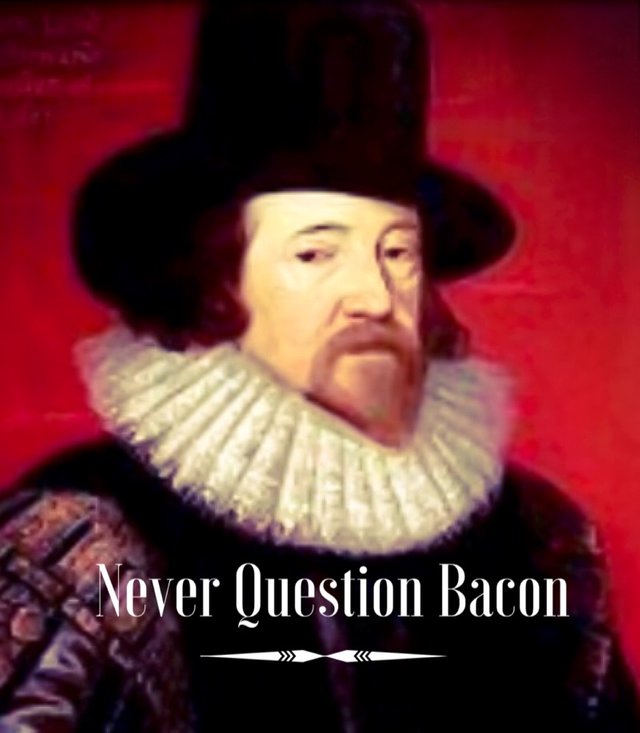
Experiment away! The future looks BRIGHT!
I think you should calm down and I would suggest you not to read my mind. I never said decentralization is a bad idea or that I am God. I am simply stating my OPINION based on discussion with other knowledgeable people and my personal studies and research. If anything please provide evidence against my "silly" opinion, instead of twisting my words and going off the topic. Thank you
@thebluepanda, I was reading the post and than this discussion, what @dwinblood want's to say is, a handhold device with out a cord that would enable you to communicate with a person on the other side of the planet in real time was "impossible" in the 80's. Yet we have phones today, to simplify even more, he reffers to your use of words like "can't" or "impossible", that's what "bugs" @dwinblood, as he explains it:
So, @dwinblood is attempting here to teach you not to "toss around" these words like that, especially in a intellectual discussion.
IMHO @dwinblood may have reacted a bit too "aggressively" on this what you may have interpreted as an "attack" on you, but it's not and In the end all he wanted is to teach you something.
@minion I like free education, I have no problem about that. but I would prefer an answer to the issue that I mentioned in my first comment, instead the discussion turned into a lesson of how I should discuss intellectually :)
I did not read your mind, or I would not have asked you a question. I did say I assumed your answer would be NO. I have no problem with you saying something is highly improbable. That was my point. You are saying CAN'T and IMPOSSIBLE and I don't see how you can be in a position to know what IS NOT POSSIBLE. If you are then I'd like to know how to do that too. :) I'm pretty calm. You didn't state it was an opinion either. You simply stated it was first IMPOSSIBLE and then said CAN'T. If you had said in your opinion, or even said you didn't think it was likely, or highly improbable, any of those types of things that leave room for you being wrong... I wouldn't have had anything to say. In saying such things you could be right. I don't know how probable it is. Yet IMPOSSIBLE and CAN'T are typically not true. ;) As an opinion though... sure. If you like closing doors on possibility that is totally your right. I also did not TWIST a single word. I described them accurately and am trying to get you to think about what you are saying. I don't actually think you know what is IMPOSSIBLE just as I don't know either. Yet, you like many people casually use absolutes when they are not casual words. They have very distinct meanings. So if you didn't mean what they actually mean then it was you that was twisting the meanings of the words in your own head and EXPECTING us to read your mind and know what you meant. I don't read minds. :) If you know how to do that though, that'd be cool to know as well. (again... I am calm. Just trying to get you to realize the flaw in your statement)
Now not talking about the other words. Whenever a new political system is attempted for the first time, that is essentially an experiment. Anything new we try could be viewed as an experiment. We hopefully learn from failures as well as successes. Political systems seem to be one of the places when it fails they try to keep forcing it anyway.
now it's my turn to pick on your words :P decentralization as a political system is an idea, a concept, a system. You don't experiment with ideas, you implement them :)
Sure and the hypothesis is that a political system will work. Anytime you try something knew you are working on a hypothesis that what you are about to attempt could be the solution to a problem. ;)
Physics is an idea. Newtonia physics is an idea. Relativity is an idea. Quantum physics is an idea. Engineering is an idea. All ideas do start as a hypothesis. You are correct that an experiment is performed to either prove, or disprove a hypothesis. Which is what should be done. It should be attempted and proven it will not work before simply saying it won't work. :)
It is better to find the road that leads to Rome before you get there.
@thebluepanda: You forget that decentralised automated consensus protocols lower the cost enormously, and allow automatic compilation of opinions and as Steem demonstrates, this can be based on a stake that represents your investment in the system as a whole, and furthermore, that you can increase that stake by repeatedly successfully consolidating the wisdom of the crowd into your own opinions, thus making you an effective representative.
steemit is not decentralized yet!
steemit.com isn't . but i already have esteem installed... there will be more apps that work through RPC and I personally have a proposal for a combined routing/caching system for eliminating location surveillance of members, which takes it to the next logical step (I am doing a brush-up of my c programming skills so I can do it properly).
Incidentally, this brings up an interesting idea. Hosting steemit could be distributed too. Though the DNS is obviously centralised, even then, there could be the use of a namecoin or similar blockchain name system, that also refers to the multiple hosters.
You are such a wise and beautiful girl, it's just amazing ;D
Cheers!
Flying isn't possible either.
In its absolute meaning, it's not possible for a human.
I'm sure people say a decentralized currency couldn't happen either..
Leading the way, the way @dajohns1420 put it, fits perfectly. Thank you for this piece @dantheman!
For me the most important aspects, the biggest benefits, of a decentralized government are that it avoids the risks of an excessive concentration of power, power abuse, and the possibilities of customized policies.
Wonderful post and thoughts about non violent societies. The decentralized idea of a wiki is really intriguing. But what I assume is the personal decision making is rather irrational and monetary reason are not the key drivers. This is one of the insights of behavioral economics. So the whole reward system for such a wiki based government should be based on behavioral economics.
Welcome to the future in BitNation . Beyond democracy we envision Holacracy
Thanks for posting this Dan. Im tweeting this for max exposure :)
Great write up, thank you.
What do we do about apathy? Just as the king doesn't want to make decisions about everything, how can we expect enough individuals to care enough to make decisions and take action, especially if those decisions/actions could impact them negatively and directly? Wouldn't a system like this also be dominated by those who already have power and are able to use it to obtain more power?
When I discuss voluntaryist concepts with my friends, some argue it's not an empathetic approach. They say it doesn't care enough about those who can't care for themselves, and they see government as the solution. Would enough people under a decentralized paradigm care about those who can't care for themselves to take action? Is social reputation for being a good actor enough to reward them for helping others? Connecting everything to a profit motive does create some challenges, but ultimately I agree with you in that I think it's the best approach we have today, given the connectedness we know enjoy as a species.
I'm sitting here in Florida waiting out the rain of hurricane Matthew and wondering the same thing - will enough people care about those who can't care for themselves? We've been told that authorities won't respond to calls for assistance right now, and I'm finding myself being more cognizant of my neighbors and what they might need, especially since I now know that there's nobody else coming to help them if a need arises. Government creates moral hazard simply by its existence. And my state of mind has definitely changed (for the better, ie, more caring) now that I know government won't be helping anyone for the next few hours.
Wow. That's a powerful example of the shift in thinking which would happen if we each took responsibility for ourselves and others. Moral hazard is a good way to put it.
Stay safe.
Thanks - we did fine. Just lost a bit of trim.
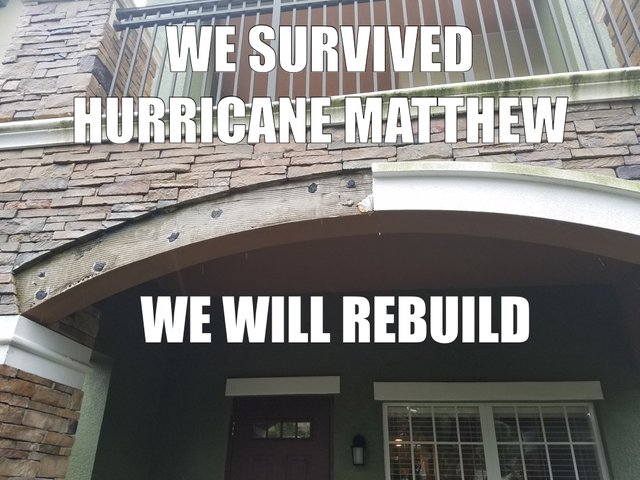
Never Forget.
That will be a whole new post.
As always, I'll look forward to reading it. Thank you.
Just quit the monopolies of the states "services" .. and everything will converge to freedom.
100 years from now, we could see signs of decentralized governments. Or at the very minimum, more decentralization activities of centralized governments.
This is a massive change that can't happen easily.
I know this, because I just hinted at some things that should change to benefit mainstream adoption in cryptocurrency projects.
I got severely flamed, called a douchebag, and everyone is squinting at me in confusion. If you're more curious, this is the post.
Nice, and I think you're right based on scanning. Upped it, and saving to read later.
Why wait 100 years, when we are all in here in a "top secret" but visible trojan horse, wink ;).